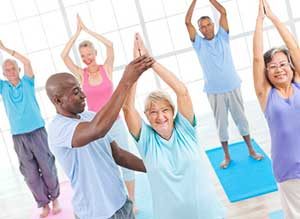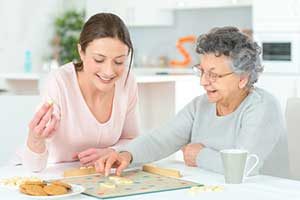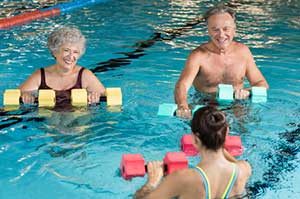 The benefits of exercising number far more than simply improving your body or losing weight. Exercise is known to boost happiness levels, reduce the risk of heart disease, help you sleep better, and even increase your energy. Although you might think regular exercise would exhaust your energy, it has been proved to boost your energy levels, encourage better sleep, and strengthen your heart and circulation. This means that oxygen is sent around the body more efficiently, leaving you feeling energized and well.
The benefits of exercising number far more than simply improving your body or losing weight. Exercise is known to boost happiness levels, reduce the risk of heart disease, help you sleep better, and even increase your energy. Although you might think regular exercise would exhaust your energy, it has been proved to boost your energy levels, encourage better sleep, and strengthen your heart and circulation. This means that oxygen is sent around the body more efficiently, leaving you feeling energized and well.
It’s clear that exercise is important for all ages, but there are additional benefits when it comes to the elderly. Exercise allows the elderly to retain their independence by keeping them healthy and strong. The physical and emotional slowing down that is associated with getting older is partially caused by decreased physical activity, so doing some exercise every day will improve your quality of life and slow down the aging process.
Sometimes it’s difficult to know what type of exercise is the best for an elderly person or aging relative, particularly if they have mobility problems or weakened bones due to osteoporosis. Luckily, exercise doesn’t have to mean lifting weights or five mile runs every day. There are many forms of exercise that are known as ‘low impact‘, meaning that they don’t strain the body as much and the risk of injury is reduced. Here are some exercise ideas for the elderly to inspire you and your loved one into starting an exercise routine:
Cognitive Exercises
 When we think of exercise, we focus on our physical body and often forget that our mental faculties also need to be exercised. Cognitive exercises for the elderly can help prevent dementia by creating new neural pathways in the brain. Anytime we learn something new, our brain makes new connections, and the more connections our brain has, the better defended our brain is from cognitive degeneration. Cognitive impairments like Alzheimer’s and dementia interfere with the connections among neurons in the brain. Cognitive exercises strengthen these neural connections, making them more resistant to degradation.
When we think of exercise, we focus on our physical body and often forget that our mental faculties also need to be exercised. Cognitive exercises for the elderly can help prevent dementia by creating new neural pathways in the brain. Anytime we learn something new, our brain makes new connections, and the more connections our brain has, the better defended our brain is from cognitive degeneration. Cognitive impairments like Alzheimer’s and dementia interfere with the connections among neurons in the brain. Cognitive exercises strengthen these neural connections, making them more resistant to degradation.
The brain of an elderly person still has the capacity to form new neural pathways, so the more new things you learn, the stronger your brain will be. Exercises that benefit our cognitive processes include simple conversation, doing routine tasks in a different order or in a way that causes the brain to become alert (writing with your non-dominant hand, for example), painting and drawing, crosswords, and Sudoku. These forms of entertainment boost the brain’s reason and problem-solving skills, as well as speeding up the processing of information and heightening creativity.
Dancing
Dancing is a fun form of exercise and can even be used to treat motor coordination problems like those associated with Parkinson’s disease. Dancing can be low or high impact, depending on the style of dance you choose. High impact dance can put stress on the joints and ligaments, so it is probably better to opt for a low impact form of dancing such as the waltz, instead of hip hop! Aerobics is also a form of dancing exercise, and it is easy to devise a workout that will give you a boost without over-exerting yourself. The memorized movement of dance stimulates areas in the brain including the motor and sensory cortices, the cerebellum, and the basal ganglia.
Swimming
 Swimming is another excellent choice for exercise, and can also be a very therapeutic and relaxing way of passing the time. The great thing about spending time in a swimming pool is that it’s completely up to you how hard you want to push yourself. When you’ve signed up for a dance or aerobics class, you’re required to participate in the routine, and it is very noticeable if you suddenly decide to stop and take a break. Swimming allows for full freedom, and if you’re not feeling up to much exercise, you can just kick your legs gently with arms outstretched at the side of the pool.
Swimming is another excellent choice for exercise, and can also be a very therapeutic and relaxing way of passing the time. The great thing about spending time in a swimming pool is that it’s completely up to you how hard you want to push yourself. When you’ve signed up for a dance or aerobics class, you’re required to participate in the routine, and it is very noticeable if you suddenly decide to stop and take a break. Swimming allows for full freedom, and if you’re not feeling up to much exercise, you can just kick your legs gently with arms outstretched at the side of the pool.
There are countless benefits of swimming. It is an ideal form of workout for the elderly, because it doesn’t present a great risk of overexertion or injury. Benefits of swimming include strengthening your heart and cardiovascular system, lowering your blood pressure, improving your circulation, and stimulating your joints without putting too much pressure on sensitive areas such as hips, knees or spine.
Healthy Caregivers Means Healthy Patients
Being a caregiver to an elderly person, particularly if it’s not your occupation and you’re a family member, can be a stressful role. In order to ensure optimal health and happiness for your loved one, staying healthy as a caregiver is of utmost importance.